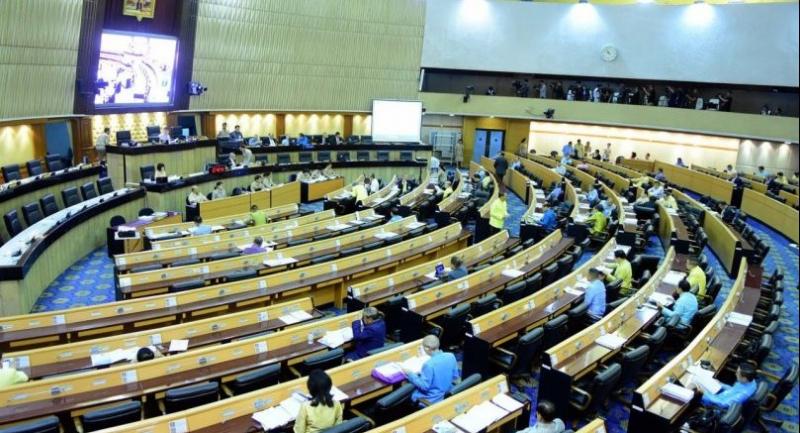MP and Senate organic bills sail through the NLA

THE NATIONAL Legislative Assembly (NLA) yesterday passed the last two organic bills – on the election of MPs and Senate selection – ending the legislative process pertaining to the 10 key organic laws.
The passing of the last two bills yesterday also painted a clearer picture of the road to the election now scheduled for next year.
The bills will now be forwarded to the prime minister to seek royal endorsement. The election, under the new Constitution, must take place within 150 days after the laws come into effect.
The MP election bill was passed with 211 votes for, none against and seven abstentions, while the Senate bill was passed 202 to one with 13 abstentions.

The NLA earlier passed both bills in three readings but the Constitution Drafting Commission (CDC), exercising its constitutional rights, had called for revisions.
The legislators subsequently agreed to amend the bills.
Among the changes in the MP election bill are: A ban on any entertainment as part of the election campaign; balloting scheduled from 8am to 5pm; and a ban on people failing to vote from holding positions in the government sector.
In the Senate selection bill, legislators retained controversial clauses such as the division of senators into 10 groups in the provisional clauses. The 10 groups are: 1 public administration and security; 2 law and justice; 3 education and public health; 4 agriculture and fisheries; 5 freelancers and labourers; 6 environment, real estates, science, and technology; 7 SMEs; 8 women, the elderly, those with special needs, and racial groups; 9 art and culture; and 10 others.
They will elect within their own groups during the first five years after the first election under the new Constitution.
However, during that period, the Constitution states that 200 of the 250 senators will be chosen by the National Council for Peace and Order. Only 50 senators will be selected using the method laid out in the organic bill.
Only after the transition period will the permanent clause be implemented. The senators will be divided into 20 groups and successful candidates will come from a cross-election.
Some critics, such as the civil society group iLaw, have questioned whether the groups will truly and inclusively represent the people.
Some groups include overlapping groups of people, iLaw said. For example, the first and the second groups were all bureaucrats, it argued.
ILaw questioned whether it was appropriate for all groups to share the same number of seats while some, such as agriculturists, outnumbered other professions.
